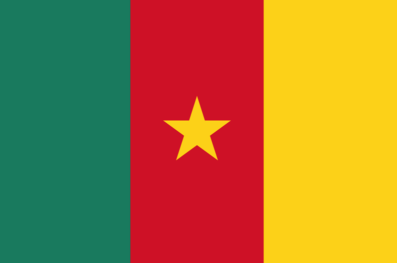Cameroon
Cameroon


Cameroon, a country in Central Africa, has an extensive history that spans several centuries. Cameroon’s modern identity is a product of its complex history, which includes ancient civilizations, European colonization, and liberation movements. This article will examine the rich history of Cameroon, focusing on its defining moments and cultural traditions.
Cultural Impacts of Ancient Civilizations
Ancient indigenous civilizations in what is now Cameroon had an important role in the country’s development. Stone Age artifacts and cave paintings show that humans have lived in Cameroon since at least then. The region saw the rise of powerful kingdoms and rich civilizations among Bantu-speaking peoples including the Tikar, Bamileke, and Douala.
German Cameroon and the History of European Colonization
The late 19th century saw competition among European nations over Africa’s lands. In 1884, the Germans conquered Cameroon and changed its name to German Cameroon. During this time, German colonizers set up plantations around the country and began extracting valuable commodities like rubber and palm oil. However, the local populace resisted German control, planting the seeds of future nationalism.
Freedom and Contemporary Cameroon
After WWI, the League of Nations split up German Cameroon between France and Britain. After years of French rule, the territory now known as Cameroon declared independence in 1960 and elected Ahmadou Ahidjo as its first president. A federal state was formed in 1961 when the region under British administration merged with Cameroon. Cameroon became a unitary state under President Paul Biya and ended its federal structure in 1972.
History in Cameroon is a complex web of ancient cultures, European colonization, and wars for independence. The trajectory of the country has been determined by its people’s resiliency and its rich cultural history.
The institution of slavery has stained the annals of history and scarred cultures all around the globe. Cameroon is one area hit hard by this bleak chapter. Cameroon, a country in central Africa, has a long and illustrious past, one in which slavery played a major part. In this essay, we will examine Cameroon’s long and complicated relationship with slavery, from its earliest days through its recent abolition.
Slavery’s African Roots in Cameroon
Slavery in Cameroon dates back to the early days of the country, when different ethnic groups were still carving out their domains. During times of battle between different tribes, captive individuals were routinely sold into slavery. Arab traders furthered this practice when they established trans-Saharan slave trading routes in the area.
Slavery during the Colonial Period in the Transatlantic
Cameroon had a crucial role in supplying European invaders with slaves throughout the transatlantic slave trade era. The European powers who set up trade stations along the coast did so by taking advantage of preexisting tribal disputes in order to capture captives for sale. Cameroonian slaves were shipped to the Americas, the Caribbean, and European colonies, where they were used in factories, mines, and residences.
Cameroon was split up amongst competing European countries during the late 19th century’s Scramble for Africa. Some colonial governments tried to outlaw slavery while others actively encouraged it to continue. Forced labor, debt bondage, and domestic servitude were all types of slavery that existed under colonial administration.
Slavery in Cameroon’s history is a dark stain on the country’s soul. Countless people were affected by it, with families being torn apart and people being dehumanized via forced labor and bondage.
Abeg, Ada, Adoucisseur, Affaire, Agara, Ah, Aissatou, Akwaya, Ambe, An, Anaconda, Arachide, Atangana, Avenir, Awara, Ayah, Babila, Babysitter, Bakassi, Bakweri, Bamenda, Bami, Bamoun, Banga, Banque, Bantu, Bara, Barbecue, Batibo, Baya, Bébé, Beignet, Belle, Benga, Bepanda, Berber, Bissongo, Boko, Bon, Bongo, Bons, Boucan, Boulou, Bous, Bouyon, Boya, Buea, Bumi, Bumper, Cacao, Cam, Camfranglais, Camion, Camtel, Caramel, Carreaux, Casino, Champ, Chateau, Chèque, Cimetière, Cinq, Classe, Club, Coca, Coq, Crème, Crocodile, Croix, Cuisse, Da, Danse, Dehors, Dix, Don, Douala, Duguma, Ébé, École, Ekoa, Elle, Enfant, Entrée, Eséka, Essomba, Essombe, Etam, Étoudi, Évêque, Fabrice, Fécafoot, Femme, Fesse, Fiançailles, Fifi, Film, Fokou, Fontem, Foul, Fouta, Frappe, Fru, Gagner, Garçon, Général, Ghomala, Gombe, Goudron, Gouvernement, Grand, Guerrier, Gwladys, Habiba, Hammam, Homme, Hôpital, Hotel, Houla, Intérieure, Italie, Ja, Japon, Jeudi, Jonas, Joseph, Joyeux, Jungle, Ka, Kamer, Kebab, Kemi, Ken, Kenya, Ketchup, Kiosque, Kolo, Konkomba, Kossala, Koum, Koutaba, Kouyape, Kumba, Lala, Lamin, Langue, and Liban













You must be logged in to post a comment Login